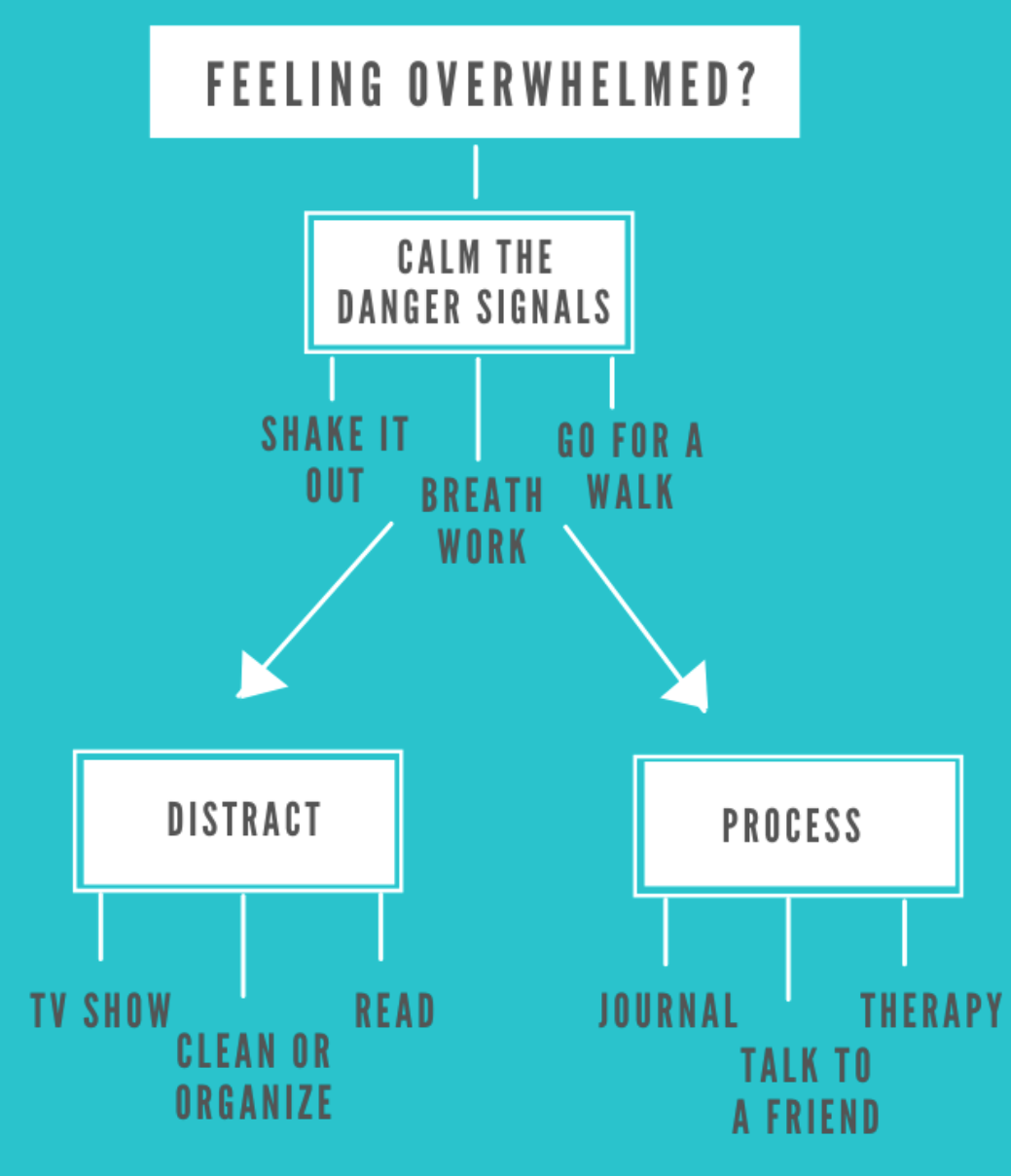Finding ways to care for ourselves in times of stress is critical to support our mental health. But sometimes when we are overwhelmed it can be difficult to identify what would help us feel better. That’s why I often recommend my clients create a self-care playbook to take some of the work out of brainstorming what might make you feel better before you need to use it.
Why is it hard to know what might make us feel better?
Our brains evolved over time to help us respond to threats in our environment in ways that help us stay safe. For much of human history, threats in our environment meant predators in nature, so our brains evolved to shut off our rational problem-solving brain in moments of danger to help us respond faster with older circuitry (our amygdala and limbic brain).
Think about it: you were much more likely to survive if your immediate response to a potential predator was to freeze, run, or fight, rather than spend precious time working out the best way to handle the threat.
Our brains’ capacity to do this allowed humans to survive long enough for you to be here today. But it also means that we have to circumvent this safety mechanism to use our rational brains to problem-solve our way out of overwhelming situations with the right self-care strategy.
Follow these three steps to build a personalized self-care playbook that works with your brain’s safety mechanisms.
Step 1. Calm the danger signals
Today, the things that cause our danger signals to go off (and produce stress) are often less suited to a fight, flight, or freeze response. We can’t run away to protect ourselves from a hard day at work or a fight with our partner–we need our rational problem-solving brain to tackle today’s stressors.
That’s why the first step in your self-care playbook should be to calm the danger signals to trick your body into believing that we have outrun the threat in order to get access to our problem-solving brain to address the situation more calmly and manage our feelings of overwhelm.
We can do this by using coping skills which connect us to our body and help calm it. Try different strategies when you are relatively calm to identify which ones are most helpful for you to feel calmer. My clients typically find breathing exercises, progressive muscle relaxation techniques, and short bursts of muscular exertion, like 30 seconds of wall sits, push ups, or jumping jacks, helpful in calming the danger signals.
In practice: Once you’ve calmed the danger signals, you can ask yourself if you need a distraction, or if

Image note
Step 2. List your distraction options
A coping skill is anything that helps us manage difficult emotions and challenging situations. Finding ways to self-soothe by distracting yourself can sometimes get a bad rap, but distractions can be powerful tools to support our mental health.
List your favorite ways to “turn your brain off” so that when you are overwhelmed, you have a multiple-choice list instead of an open-ended question of how you might help yourself through this challenging moment. Be specific when listing your favorite tv shows, movies, books, games or activities that help you feel calmer.
In practice: once you’ve chosen a distraction tool and are feeling calmer, maybe you move on to a process self-care tool to help you make sense of this challenging experience in a way that will be beneficial for your long-term mental health. Maybe that kind of self-care doesn’t feel accessible to you right now, and that’s just fine too. There is always tomorrow.
Step 3. List your process options
Your “process” coping skills are self-care strategies wherein you lean into what is causing you stress. What tools do you have available to you to help you make sense of what is happening? Maybe you can list a trusted friend who you can call to put the situation into perspective. Maybe journaling goes on your process list, alongside spending time in therapy on what is causing you stress.
Sometimes when we decide to process what is causing us stress and anxiety it can feel difficult to decide where to start. I often recommend my clients start with journal prompts like these when you’re feeling stuck.
Start writing your playbook today
Moving through your life with less stress and more ease begins with taking care of yourself before you are feeling overwhelmed. If you need support building a self-care playbook that will work for you, reach out to one of our therapists today.
Written By: Kirsten Lyons, LCSW
Like this post? Try one of these next!





